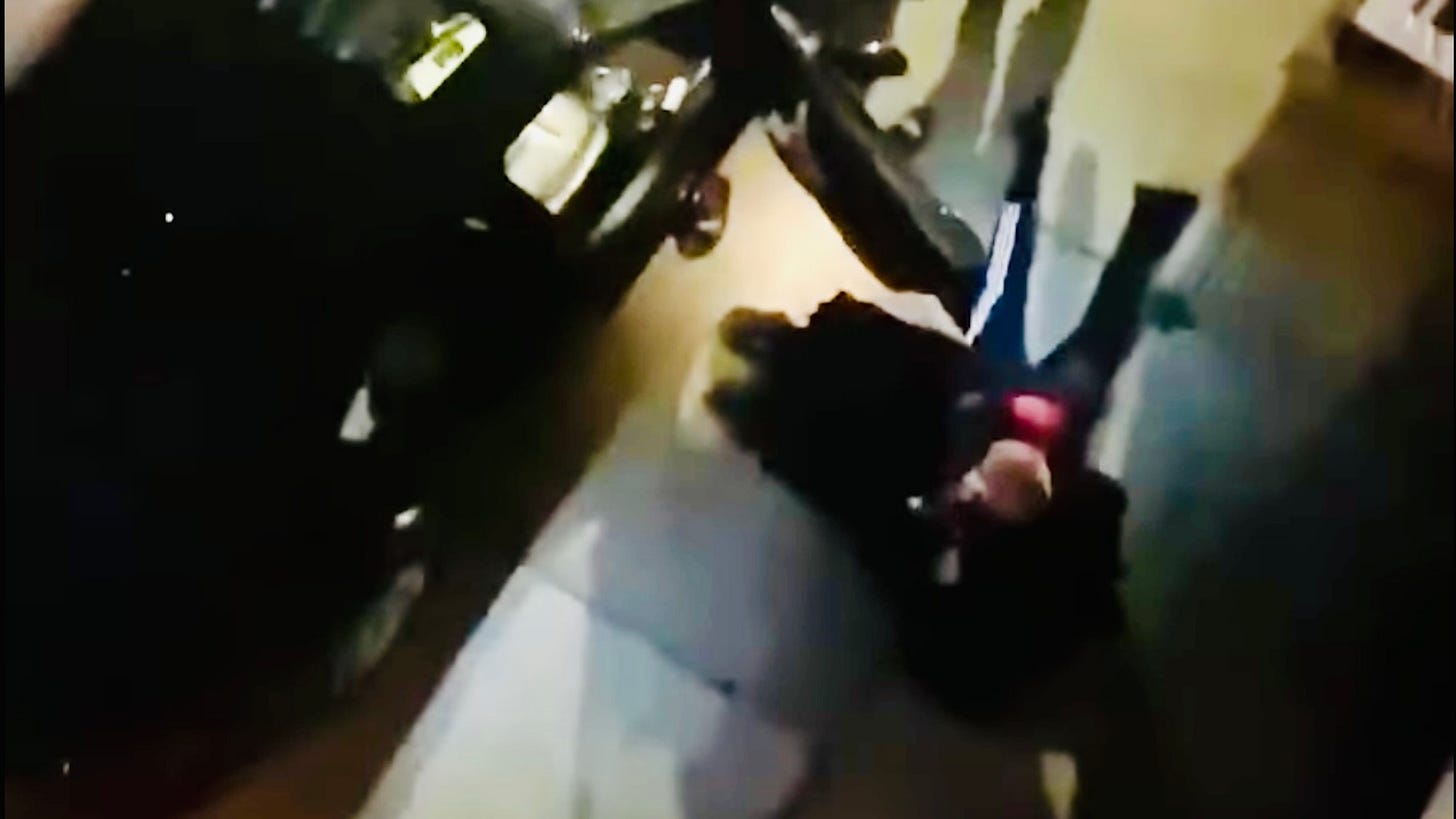Oped: City of Providence v. Sgt Hanley
I have agreed to keep the author of this oped anonymous, because they fear for their personal safety.
We know this story. Not because we were there when Rishod Gore was yanked from his car, not because we saw the pepper spray cloud hanging in the Providence night air, but because we’ve lived this before. In Rhode Island, where the Newport breeze carries salt and the promise of history, it also carries the choking familiarity of Black bodies under siege.
Gore’s story isn’t an outlier. It’s the latest chapter in a story of two groups of people in the United States that we’ve been forced to memorize. The same story of Trayvon Martin’s hoodie, which made him a target in Florida, is the same way Rhode Island women’s rights activist Jennifer Rourke was made a target by current Providence Police Officer Jeann Lugo when he punched her for attempting to keep peace among anti-abortion counterprotesters the night Roe v. Wade was overturned. Gore’s Black skin and his camera made him a threat in Providence. And Rhode Island’s law enforcement responded exactly as it always does—with force first, questions never.
That night, Gore did what any of us would do: He pressed record. Because we know what happens when there’s no footage. We know how stories get twisted, how “I feared for my life” turns our pain into police justification. So when Rishad Gore said, “Watch what’s going to happen,” he wasn’t predicting—he was testifying. And still, Sgt. Hanley, with his spotless record and his unchecked authority, treated Gore’s witness as a provocation. No commands. No de-escalation. Just hands on a Black body, the way it’s always been.
And who stood beside Hanley? Two officers, names half-hidden, badges gleaming. It doesn’t matter who they were—what matters is what they represent: the unbroken line of Rhode Island’s policing culture, where brutality is protected, where accountability is negotiated behind closed doors by men like State Senator Todd Patalano, who’s spent decades straddling the line between police oversight and political power. The same system that has kept Officer Jeann Lugo employed after his violent outburst—punching Jennifer Rourke in the face—is the same one that bent over backward to frame Hanley’s assault as an "isolated incident" rather than proof of a pattern.
Eight years after Trayvon Martin’s death, we’re still explaining why a Black man in a hoodie isn’t a threat. Five years after the murder of Breonna Taylor, we’re still begging Rhode Island to see Black women like Jennifer Rourke as mothers and wives. The LEOBOR process as a whole? A slap on the wrist wrapped in a standing ovation. They tell Providence Police Officers like Hanley Thank you, praising his ‘dedication and professionalism’ rather than reckoning with Gore’s terror of his own possible death. Where was the moment of silence for the trauma? Where was the acknowledgment that, for us, every interaction with police is a potential death sentence?
This isn’t about “bad apples.” This is about the orchard. The Democratic Party in Rhode Island loves to campaign on “progress,” but what progress looks like to us is Officers Lugo and Hanley still employed, Black families and individuals destroyed, always secondary to police reputations. We’re tired of platitudes while Black Rhode Islanders are pulled over, roughed up, and reminded that our safety is negotiable in a Rhode Island Judiciary Committee hearing that Cranston Police Major and Democratic Senator Todd Patalano serves on. Gore’s fear wasn’t paranoia—it was preparation. Because in Rhode Island, we know the script. We’ve seen it play out in Olneyville, in Pawtucket, in the way cops patrol our neighborhoods like occupying forces. We know that justice here isn’t blind—it’s blinkered, selective, and always willing to give police a second chance they’d never extend to us. We’re not safe. Not when the system is working exactly as it was designed—to control, to criminalize, to remind us that our bodies are not our own. Until that changes, the cycle won’t just continue. It will tighten.




Beautifully written and well-argued. My favorite line? "This isn’t about 'bad apples.' This is about the orchard." I am tired of being sold police reform when what we need is police abolition. Anything a cop does poorly (or not at all) can be done better by others. We keep us safe.
Until we get civillian review of police violence we are going to see this again and again. Cops never are willing to stop their violent brethren from preying on the community.